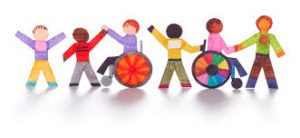Weekly Roundup
 Literacy in the 21st century: International Symposium Report
Literacy in the 21st century: International Symposium Report
In July 2018, the European Literacy Policy Network (ELINET) brought together 80 partners from 28 European countries involved in literacy projects and research, including existing literacy networks. The aim of this two day symposium was to draw attention to the challenge of the 21st century in securing a basic standard of literacy for all citizens of Europe. The symposium gave insights into the work of the members through parallel sessions under the theme: “Literacy in the 21st Century: Participation, Inclusion and Equity”.
For more information about the symposium, please click here.
 Does it matter if men don’t teach?
Does it matter if men don’t teach?
The absence of male teachers in schools is not a new issues. According to the latest Eurostat data, only 15 % of primary school teachers in Europe are men. And in the future the imbalance is set to intensify with fewer men entering the profession. Why do we have such a strong gender imbalance and more importantly, does it matter? Read the full article here.
 New UNESCO chair aims to demonstrate impact adult education
New UNESCO chair aims to demonstrate impact adult education
In collaboration with UNESCO and the Flemish Commission for UNESCO in Belgium, Professor Maurice de Greef will be implementing the new UNESCO Chair of Adult Education. The Chair aims to promote international academic collaboration in key UNESCO areas such as education, culture and sustainable development. Professor de Greef says: “We want to do (even more) quantitative research to demonstrate the impact of adult education. We want to show people the benefits of adult education, both for the participants themselves and for those around them”.
For more information about the new UNESCO chair click here:
 UPCOMING: European Day of Languages
UPCOMING: European Day of Languages
Join the European Commission on September 27th to celebrate the European Day of Languages. The Lunchtime conference “Learning three languages in school: multilingual education and cultural expression” will entail a creative interaction involving policy, poetry, music and pictures. Furthermore, there will be an exhibition presenting some lesser known languages spoken in the European Union. The European Day of Languages, established by the European Commission and the Council of Europe, is a yearly opportunity to raise awareness around language learning and linguistic diversity and to celebrate the linguistic heritage of the European community.
Register now via the following link here.
 Loquor Ergo Sum: new ideas for language teaching
Loquor Ergo Sum: new ideas for language teaching
Today, more than one in ten learners in European schools speak a different language at home than the language of instruction. Globalisation might favour bigger languages like English, Spanish or Chines, but with today’s technologies it is possible to learn many different languages without learning them in a formal setting. School education should adjust to these trends and make language teaching relevant for students.
For some ideas on how to teach languages in the 21st century read the full article here.
 Education Talks: Metrolingualism, superdiversity and European classrooms
Education Talks: Metrolingualism, superdiversity and European classrooms
Have you ever heard of the terms metrolingualism and superdiversity? And how it should be taught in a multilingual classroom? This interview with Thomas Friets, the head of lernraum.wien institute for multilingualism, integration and education, will expand you knowledge on the terms.
Read the complete interview here.
 Fostering inclusive and intercultural citizenship through Media Education
Fostering inclusive and intercultural citizenship through Media Education
How can we disempower racist discourses in the media and in the broader society? How can we contribute to reassert principles such as equity, social justice and solidarity while migrants and refugees are increasingly marginalised and discriminated? In what ways can teachers and educators be supported in facing these challenges for the contemporary democratic societies in Europe? Prof. Maria Ranieri and Francesco Fabbro wrote this article on how to foster inclusive and intercultural citizenship through media education.
Read the full article here.
 Get ready for the new school term with online support
Get ready for the new school term with online support
As the new school year starts, School Education Gateway is pleased to offer new and diverse content and activities. You can participate in online courses to improve your teaching practice. The first online course of this autumn is embracing language diversity in your classroom, which helps raise teachers’ language awareness and shows them how learning experiences can benefit from their students’ own multilingualism.
To learn more about online support click here.
Prepared by Dimyana Salib

